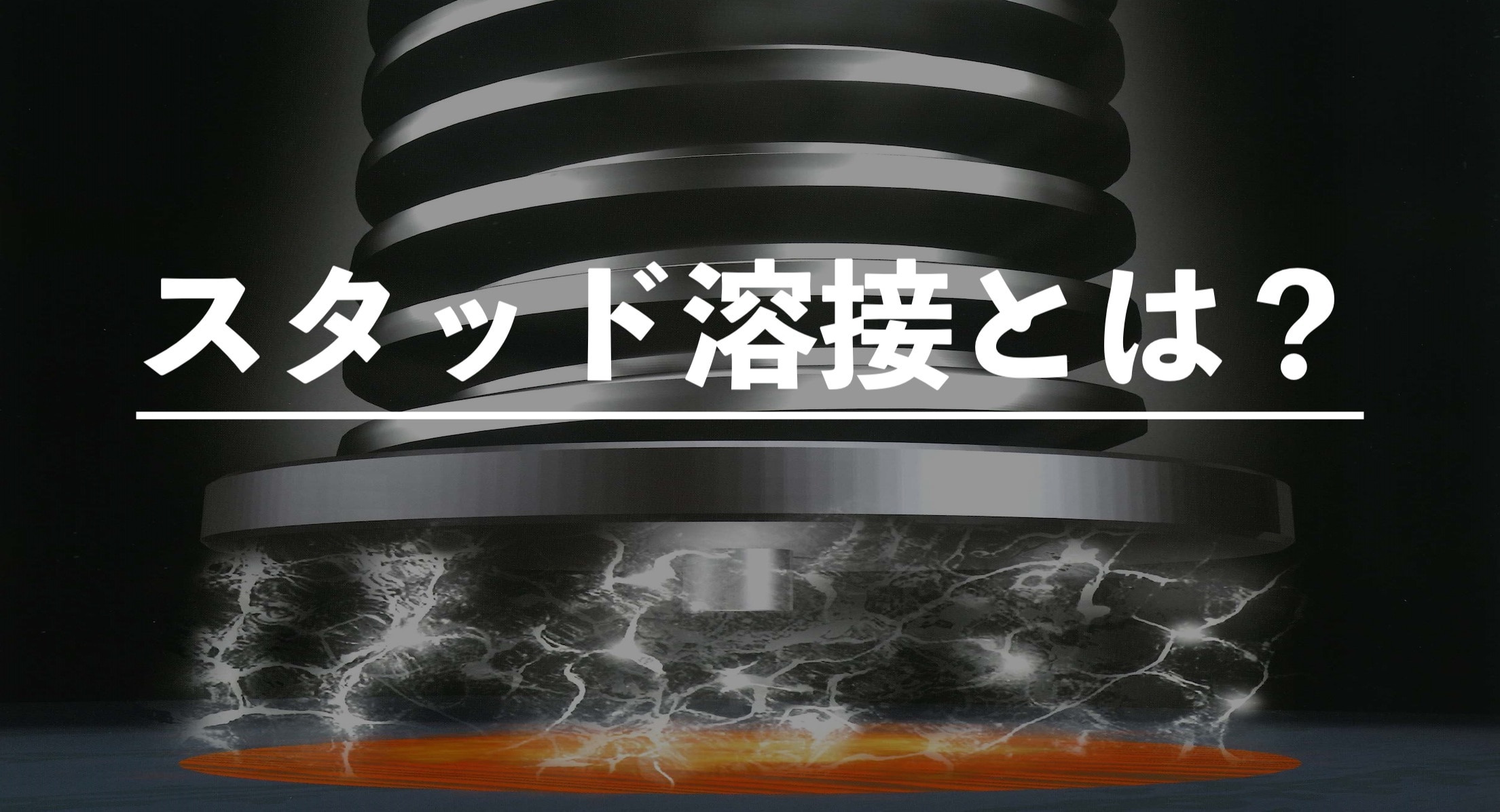
What is stud welding? Explaining the basic principles, types, and characteristics
Stud welding, a type of welding method, is a technique of welding screws to a flat surface of metal. Stud welding is classified as fusion welding and is used in a wide range of fields, including civil engineering and construction, the automobile industry, and sheet metal processing.
In this article, we will provide an overview of stud welding, as well as explain its basic principles and characteristics.
Table of contents [hidden]
What is stud welding?
Stud welding is a method of instantly welding bolts and nuts called studs to metal plates.
Stud welding instantly joins the stud and base metal using an arc discharge generated by passing an electric current between the stud and base metal. Place the stud in the welding gun and pull the trigger to complete welding.
Principles and types of stud welding
There are various types of stud welding, including the capacitor CD stud method, electric arc method, and short cycle method. However, the basic principle is the same for all types.
When performing stud welding, the work is carried out following a series of steps.
▼Principles and process of stud welding
- Attach the stud material to the welding gun
- Set the ground to the base material
- Apply current by bringing the stud material into contact with the base material
- An arc is generated between the base material and the stud material, resulting in melt welding.
The main types of stud welding are:
▼Types of stud welding
item | detail |
Capacitor CD stud method |
|
electric arc method |
|
Short cycle method |
|
Gas shield method |
|
Features of stud welding
Stud welding has the characteristics of less impact on the base metal, high productivity, and high versatility. Here, we will introduce four typical characteristics.
① Less impact on base material
Stud welding is characterized by the fact that it hardly leaves welding marks. The relatively short time required for welding minimizes the impact on the base metal.
In addition, stud welding can be performed even after bending and forming the casing.
②High productivity
Stud welding is characterized by very short welding time and high productivity.
Welding can be completed instantly at one location, making work more efficient and reducing the burden on the operator.
③ Not affected by the skill of the worker
Stud welding does not require difficult operations, so it is not dependent on the skill of the operator.
By setting the conditions of the welding machine, it is possible to prevent variations in quality and achieve a stable finish without being affected by the skill or experience of the operator.
④Used in a wide range of fields
Stud welding is one of the important technologies used in various fields.
Stud welding is used when you want to increase strength and suppress distortion, and is also suitable for mass production. Therefore, it is used in a wide range of fields.
The main areas that utilize stud welding are:
▼Fields that utilize stud welding
- Manufacture of precision equipment
- sheet metal processing
- Fundamentals of civil engineering and construction industry
- Bridge related
- Furnace construction related
- automotive industry
- Liquefied natural gas storage tanks, etc.
summary
In this article, we explained the following about stud welding.
- What is stud welding?
- Principles and types of stud welding
- vinegarCharacteristics of tad welding
Stud welding can be completed in a short time and requires no skill, so it can be said to be effective in improving productivity and maintaining quality. By correctly setting the welding machine conditions, it is possible to always achieve a stable finish, regardless of the skill or experience of the operator.
There are various types of stud welding, such as the capacitor CD stud method, which is suitable for welding delicate base materials, and the electric arc method, which is suitable for welding thick base materials. It is valued as an essential technology in a wide range of fields such as sheet metal processing.
DaidoKogyooffers industrial machinery that is compatible with various welding methods, including stud welding machines. We will listen closely to the issues your company faces, such as aging equipment and improving production efficiency, and propose machinery that meets your needs.
Thank you for reading to the end.
You can download the catalogue for free from the button below.
Please feel free to contact us here regarding our services.






